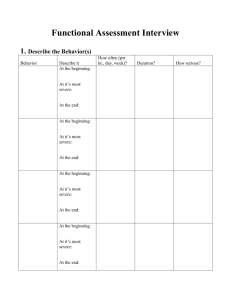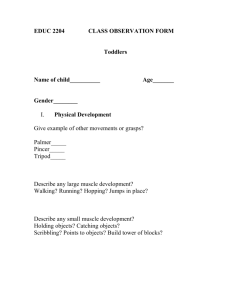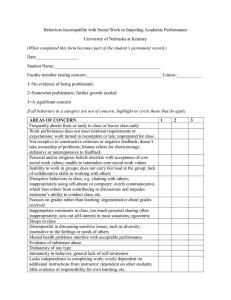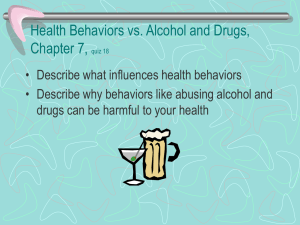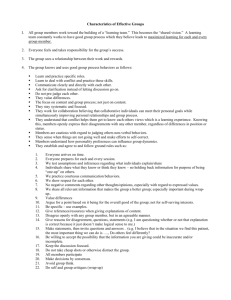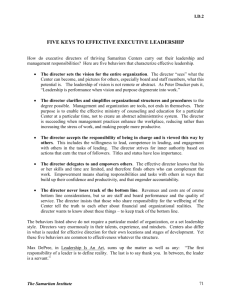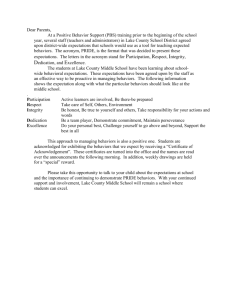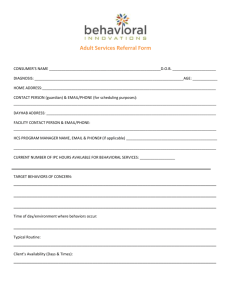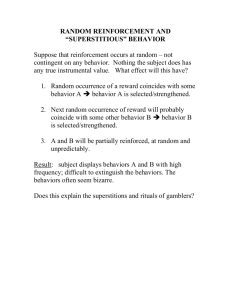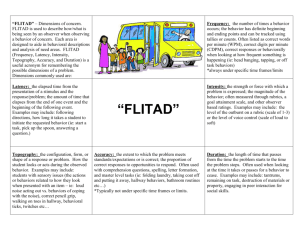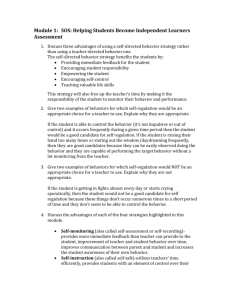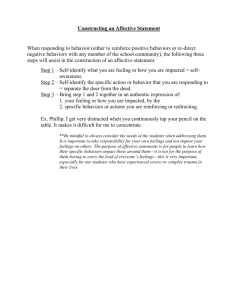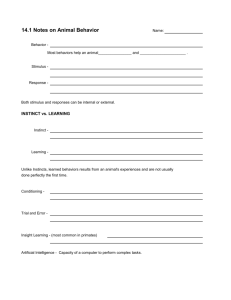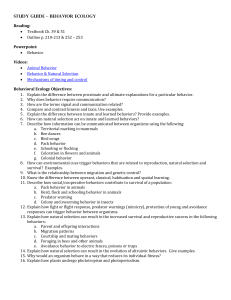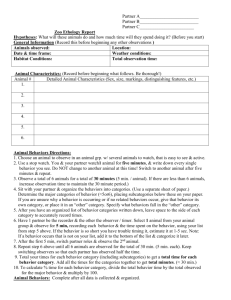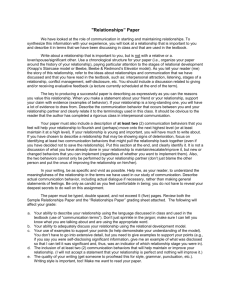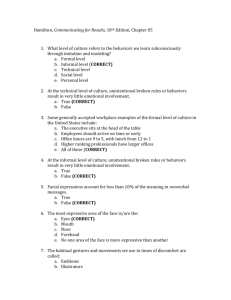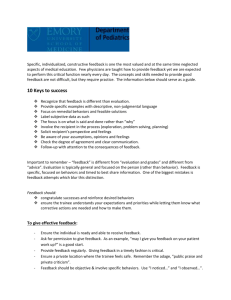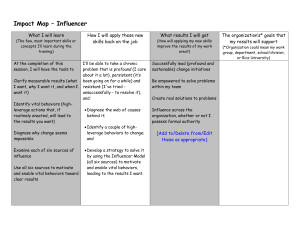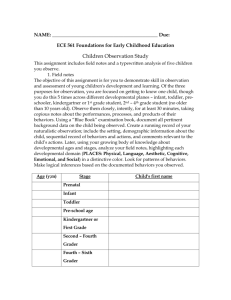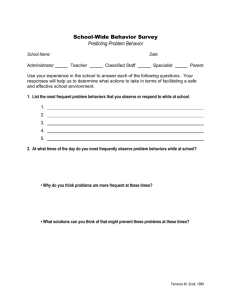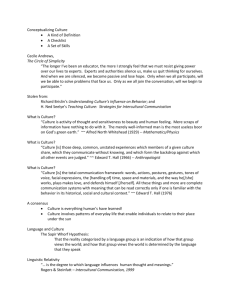13-14_Clarifying-Behavior-Problems-and-Adult
advertisement
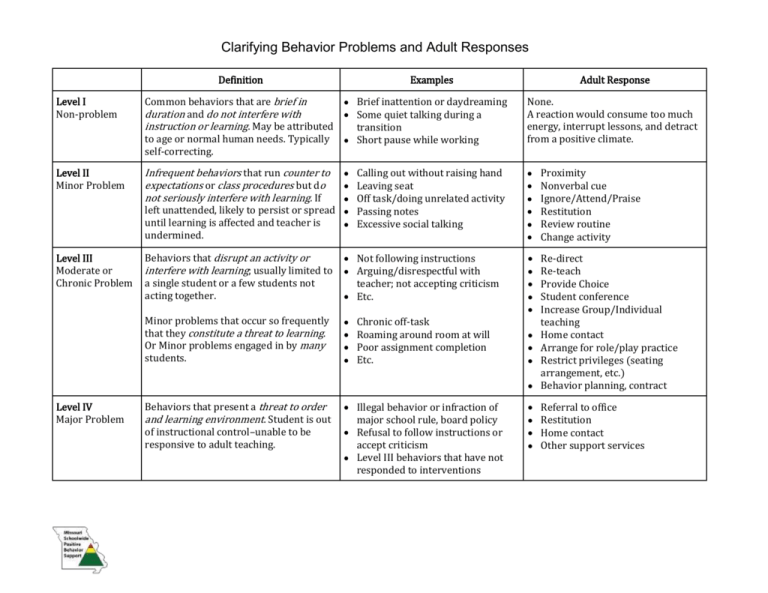
Clarifying Behavior Problems and Adult Responses Definition Examples Adult Response Level I Non-problem Common behaviors that are brief in Brief inattention or daydreaming duration and do not interfere with Some quiet talking during a instruction or learning. May be attributed transition to age or normal human needs. Typically Short pause while working self-correcting. None. A reaction would consume too much energy, interrupt lessons, and detract from a positive climate. Level II Minor Problem Infrequent behaviors that run counter to expectations or class procedures but do not seriously interfere with learning. If left unattended, likely to persist or spread until learning is affected and teacher is undermined. Proximity Nonverbal cue Ignore/Attend/Praise Restitution Review routine Change activity Level III Moderate or Chronic Problem Behaviors that disrupt an activity or interfere with learning; usually limited to a single student or a few students not acting together. Not following instructions Arguing/disrespectful with teacher; not accepting criticism Etc. Minor problems that occur so frequently that they constitute a threat to learning. Or Minor problems engaged in by many students. Re-direct Re-teach Provide Choice Student conference Increase Group/Individual teaching Home contact Arrange for role/play practice Restrict privileges (seating arrangement, etc.) Behavior planning, contract Referral to office Restitution Home contact Other support services Level IV Major Problem Behaviors that present a threat to order and learning environment. Student is out of instructional control–unable to be responsive to adult teaching. Calling out without raising hand Leaving seat Off task/doing unrelated activity Passing notes Excessive social talking Chronic off-task Roaming around room at will Poor assignment completion Etc. Illegal behavior or infraction of major school rule, board policy Refusal to follow instructions or accept criticism Level III behaviors that have not responded to interventions
